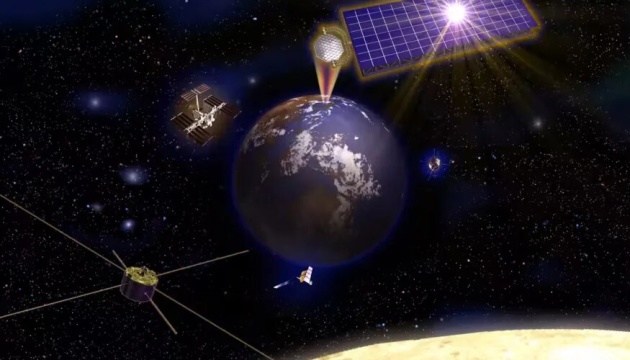Japan plans to collect energy in space and send it to Earth
- May 30, 2023
- 0
Japan’s aerospace research agency, JAXA, will attempt to divert solar energy from space as early as 2025. As reported by Ukrinform, Engadged is reporting it. It was noted
Japan’s aerospace research agency, JAXA, will attempt to divert solar energy from space as early as 2025. As reported by Ukrinform, Engadged is reporting it. It was noted


As reported by Ukrinform, Engadged is reporting it.
It was noted that representatives of the Japanese technology industry and the country’s JAXA space agency have struggled for decades to enable the transmission of solar energy from space.
In 2015, the country made a breakthrough when JAXA scientists successfully transmitted 1.8 kilowatts of energy, enough to power an electric water heater, to a wireless receiver over 50 meters. Now Japan is ready to bring this technology one step closer to reality.
JAXA will attempt to divert solar energy from space as early as 2025. Led by Kyoto University professor Naoki Shinohara, who has been working on space solar energy since 2009, the project involves placing a series of small satellites into orbit. They will then try to divert the collected solar energy to ground receiving stations hundreds of kilometers away.
The use of orbiting solar panels and microwaves to transmit energy to Earth was first proposed in 1968. Since then, many countries, including China and the United States, have spent time and money realizing this idea.
This technology is attractive because orbital solar cells are a potentially unlimited source of renewable energy. In space, solar panels can collect energy at any time of the day, and clouds are no longer a problem, thanks to the use of microwaves to transmit the energy produced.
As the publication states, the production of an array capable of producing 1 gigawatt of energy, or approximately the power of a nuclear reactor, would cost about $7 billion using technologies available today. This could significantly complicate the company’s plans to develop and further implement such technologies.
As reported by Ukrinform, Tokyo-based Preferred Robotics Inc. introduced Kachaka, the robot with artificial intelligence, to help at home.
Photo: Kyoto University
Source: Ukrinform
As an experienced journalist and author, Mary has been reporting on the latest news and trends for over 5 years. With a passion for uncovering the stories behind the headlines, Mary has earned a reputation as a trusted voice in the world of journalism. Her writing style is insightful, engaging and thought-provoking, as she takes a deep dive into the most pressing issues of our time.